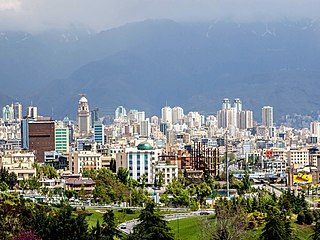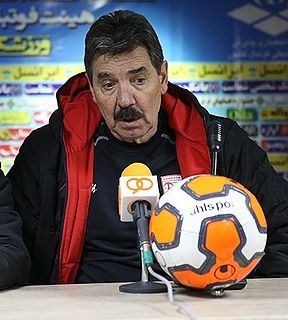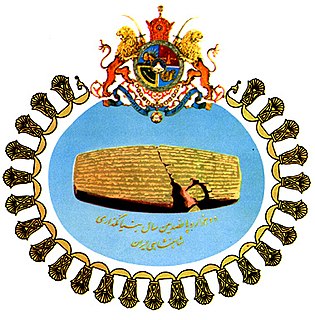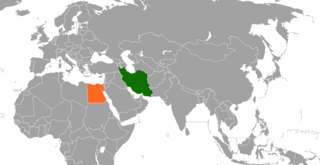| |||||
| Decades: | |||||
|---|---|---|---|---|---|
| See also: | Other events of 1971 Years in Iran | ||||
Events from the year 1971 in Iran.
| |||||
| Decades: | |||||
|---|---|---|---|---|---|
| See also: | Other events of 1971 Years in Iran | ||||
Events from the year 1971 in Iran.

Iran, also called Persia, and officially the Islamic Republic of Iran, is a country in Western Asia. It is bordered to the northwest by Armenia and Azerbaijan, to the north by the Caspian Sea, to the northeast by Turkmenistan, to the east by Afghanistan, to the southeast by Pakistan, to the south by the Persian Gulf and the Gulf of Oman, and to the west by Turkey and Iraq. Its central location in Eurasia and proximity to the Strait of Hormuz give it significant geostrategic importance. Tehran is the capital and largest city, as well as the leading economic and cultural hub; it is also the most populous city in Western Asia, with more than 8.8 million residents, and up to 15 million including the metropolitan area. With 83 million inhabitants, Iran is the world's 17th most populous country. Spanning 1,648,195 km2 (636,372 sq mi), it is the second largest country in the Middle East and the 17th largest in the world.

Iran is a republic in which the president, parliament (Majles) and judicial system share powers reserved to the national government, according to its Constitution. The politics of Iran take place in a framework that officially combines elements of theocracy and presidential democracy. The December 1979 constitution, and its 1989 amendment, define the political, economic, and social order of the Islamic Republic of Iran, declaring that Shia Islam is Iran's official religion where around 90–95% of Iranians associate themselves with the Shia branch of Islam.

The Economy of Iran is a mixed and transition economy with a large public sector. It is the world's eighteenth largest by purchasing power parity (PPP). Some 60% of Iran's economy is centrally planned. It is dominated by oil and gas production, although over 40 industries are directly involved in the Tehran Stock Exchange, one of the best performing exchanges in the world over the past decade. With 10% of the world's proven oil reserves and 15% of its gas reserves, Iran is considered an "energy superpower." A unique feature of Iran's economy is the presence of large religious foundations called Bonyad, whose combined budgets represent more than 30 percent of central government spending.

The United Arab Emirates, sometimes simply called the Emirates, is a sovereign state in Western Asia at the northeast end of the Arabian Peninsula, in the south of the Persian Gulf, bordering Oman to the east, and Saudi Arabia to the south and west, as well as sharing maritime borders with Qatar to the west and Iran to the north. The sovereign absolute monarchy is a federation of seven emirates consisting of Abu Dhabi, Ajman, Dubai, Fujairah, Ras Al Khaimah, Sharjah and Umm Al Quwain. Their boundaries are complex, with numerous enclaves within the various emirates. Each emirate is governed by a ruler; together, they jointly form the Federal Supreme Council. One of the rulers serves as the President of the United Arab Emirates. In 2013, the UAE's population was 9.2 million, of which 1.4 million were Emirati citizens and 7.8 million were expatriates. The estimated population of the UAE in 2020 was 9.89 million.

Ali Karimi is an Iranian football coach and retired player. He has played for Fath Tehran, Persepolis, Al-Ahli Dubai, Bayern Munich, Qatar SC, Steel Azin, Schalke 04, Tractor Sazi, and the Iran national team for which he scored 38 goals in 127 appearances. In 2004, he became the fourth Iranian player to win the Asian Footballer of the Year. He announced his retirement at the end of the 2013–14 season and, on 11 April 2014, played the final game of his 18-year career.

Faegheh Atashin, better known by her stage name Googoosh, is an Iranian singer and actress, and one of Iran's most popular and enduring entertainers, whose career spans over 60 years. Googoosh has enjoyed significant popularity since the beginning of her career, ultimately becoming a cultural icon inside Iran and abroad.

Esteghlal Tehran Football Club, commonly known as Esteghlal, is an Iranian football club based in capital Tehran, that competes in the Persian Gulf Pro League. The club was founded in 1945 as Docharkheh Savaran and previously known as Taj Tehran Football Club between 1949 and 1979. The club is part of the multisport club Esteghlal of Iran Athletic and Cultural Company. They are the first team which got 1000 points in Persian Gulf Pro League.
A voting age is a minimum age established by law that a person must attain before they become eligible to vote in a public election. Today, the most common voting age is 18 years; however, voting ages as low as 16 and as high as 25 currently exist. Most countries have set a minimum voting age, often set in their constitution. In a number of countries voting is compulsory for those eligible to vote, while in most it is optional.
Petrocurrency is a neologism used with three distinct meanings, often confused:

Abu Musa is a 12.8-square-kilometre (4.9 sq mi) island in the eastern Persian Gulf near the entrance to the Strait of Hormuz. Due to the depth of sea, oil tankers and big ships have to pass between Abu Musa and Greater and Lesser Tunbs; this makes these islands some of the most strategic points in the Persian Gulf. The island is administered by Iran as part of its province of Hormozgan, but is also claimed by the United Arab Emirates as a territory of the emirate of Sharjah.

The National Iranian Oil Company is a government-owned national oil and natural gas producer and distributor under the direction of the Ministry of Petroleum of Iran. NIOC was established in 1948 and restructured under The Consortium Agreement of 1954. NIOC ranks as the world's second largest oil company, after Saudi Arabia's state-owned Aramco.

Shahnaz Pahlavi is the first child of the Shah of Iran, Mohammad Reza Pahlavi, and his first wife, Princess Fawzia Fuad of Egypt.

António José da Conceição Oliveira, known as Toni, is a Portuguese former footballer who played as a midfielder, and a coach.

Mohammad Javad Zarif is an Iranian career diplomat and academic. He has been foreign minister of Iran since 2013. During his tenure as foreign minister, he led the Iranian negotiation with P5+1 countries which produced the Joint Comprehensive Plan of Action on 14 July 2015, lifting the economic sanctions against Iran on 16 January 2016. On 25 February 2019, Zarif resigned from his post as foreign minister. His resignation was rejected by President Hassan Rouhani and he continues as foreign minister.

Taftan is an active stratovolcano in south-eastern Iran situated in the Sistan and Baluchestan province. With variable heights reported, all around 4,000 metres (13,000 ft) above sea level, it is the highest mountain in south-eastern Iran. The nearest city is Khash.

Andranik Timotian-Samarani, commonly known as Andranik "Ando" Teymourian is a retired Iranian footballer. He usually played as a defensive midfielder, but can also played as a wide midfielder. He is notably the first Christian to captain the Iranian national team.

The 2,500-year celebration of the Persian Empire, officially known as the 2,500th Year of the Foundation of the Imperial State of Iran, consisted of an elaborate set of festivities that took place on 12–16 October 1971 to celebrate the anniversary of the founding of the Imperial State of Iran and the Achaemenid Empire by Cyrus the Great. The intent of the celebration was to demonstrate Iran's ancient civilization and history and to showcase its contemporary advances under His Imperial Majesty Mohammad Reza Shah, the last Shah of Iran.
There have been a number of sanctions against Iran imposed by a number of countries, especially the United States, and international entities. The first sanctions were those imposed by the United States in November 1979 after a group of radical students seized the American Embassy in Tehran and took the people inside hostage. The sanctions by Executive Order 12170 included freezing about $12 billion in Iranian assets, including bank deposits, gold and other properties, and a trade embargo. These sanctions were lifted in January 1981 as part of the Algiers Accords, which was a negotiated settlement of the hostages’ release.

Egypt–Iran relations refers to the current and historical relations between Egypt and Iran. Following the Egyptian Revolution of 2011, Iran appointed its first ambassador to Egypt in almost 30 years. Despite oft-wavering tensions between the two countries, they share membership in the OIC and the Developing 8.
| This year in Iran article is a stub. You can help Wikipedia by expanding it. |